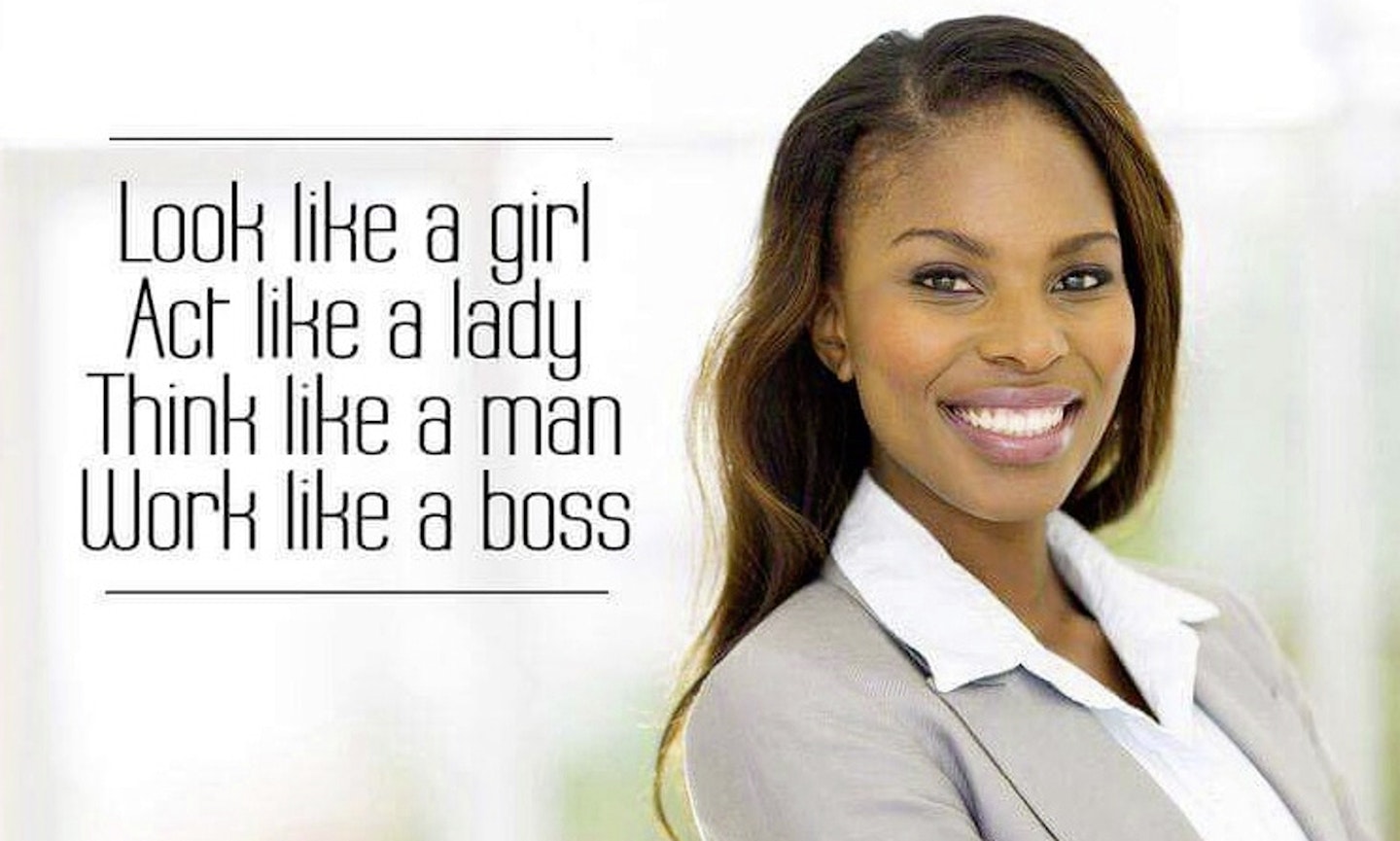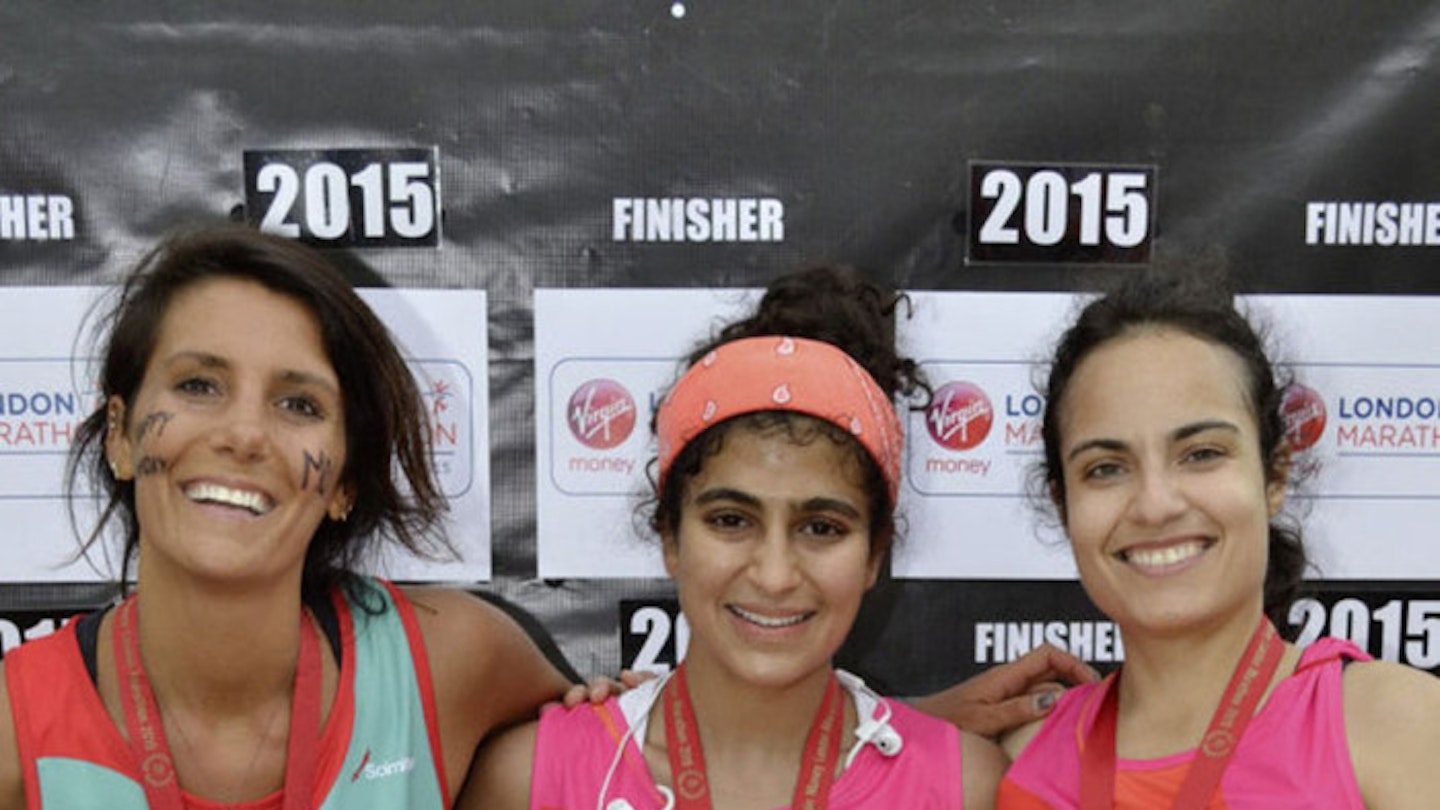Harvard graduate, and M.I.A.’s drummer, Kiran Gandhi divided global opinion with the revelation she’d run the London marathon while ‘free-bleeding’. Here, she says we must end the stigma around menstruation. Period.
In April, I ran a marathon for the first time. I ran all 26.2 miles, I sweated and ached and, until I crossed the finish line four hours later, I didn’t know if it was ever going to end. I also did it while on my period – not only that, but without using any sanitary products. Yes, I ‘free-bled’ my way around the course, in pink (and, inevitably, stained) shorts.
Because of that, in the last week – after a blog post I’d written about my experience went viral – I’ve been called ‘disgusting’, ‘gross’ and been told my actions were unhygienic and ‘vile’. Hundreds of articles have generated thousands of comments and debates over social media about what I did, why I did it and why I shouldn’t have done it.
It was a snap decision that led me to free-bleed in the first place. On the morning of my first marathon (and the first day of my period), I looked at my options: a menstrual cup or a sanitary towel, which both suggested painful chaffing that I didn’t want to risk. My final option was a tampon. Personally, I’ve never found tampons comfortable (especially on a long run). In that moment, I knew if I wore a tampon it wouldn’t be for my own benefit – I’d be prioritising the comfort of others, who might dislike the sight of blood. I decided it wasn’t their call what I did with my body. I chose my own wellbeing over societal norms – and in the process made a statement that would shock the world.
I didn’t regret the decision. Running free, without something wedged inside me, was blissful. Liberating, in fact. I barely noticed I was on my period. Periods are a bodily fluid just like sweat or urine, which are often seen on runners’ bodies without controversy. The more I ran, the more I unpacked the issue in my mind.
'Shockingly, only 12% of girls globally have access to sanitary products'
This shouldn’t have been a radical or political decision, yet the woman who stopped me halfway through to tell me my period had arrived – with a disgusted look on her face – obviously thought it was.
And recently, after I shared my story online in the belief that a handful of women would find it interesting, I saw, with the onslaught of discussion on social media, just how controversial periods really are.
The hate didn’t bother me. In an ideal world, my blog wouldn’t have gone viral, but it underlined just how taboo periods are, and how much work we have to do to break through that. Firstly, periods are not gross. And haters: my body is not there for your disgust. My body is there to do the amazing things it does naturally in order to enable life. Secondly, if my blood had carried a disease or come into contact with anyone else, it would have been unhygienic. It did not.
I want to firmly assert that my statement is not that women should bleed freely. I’m advocating that women make the choice that’s best for them in that moment, without fear.
We shouldn’t be ashamed of our bodies or menstruation. All over the world, attitudes towards periods perpetuate oppression – whether that’s girls in Uganda who miss out on their education once per month because they’re unable to go to school when they’re bleeding, or Donald Trump using periods as an indicator of weakness to try to bring down a powerful woman, as he did recently.
Because generally it’s men setting the precedent of what is ‘normal’ in society – like in the workplace – we use male standards to decide what’s acceptable. With periods, that means we hide our tampons up our sleeves and suffer in silence at the office when cramps are making us feel ill. It’s all reinforced by sexist adverts, like the South African one for Bic pens that hit headlines last week. It urged women to: ‘Look like a girl. Act like a lady. Think like a man. Work like a boss’. The notion that something happens to our bodies once a month that doesn’t fit into a male narrative – it’s not ‘sexy’ or ‘beautiful’ as society dictates women should be – shames us into silence.

I ran without a piece of cotton between my legs that day because I wanted to own my own narrative when it comes to my body – and I wanted to encourage others to do the same. I also wanted to start a conversation that would consider the shocking fact that only 12 per cent of girls worldwide have access to sanitary products. I’m glad that free-bleeding through the marathon has given me the platform to state very publicly that periods are natural and normal, because that’s the first step in combatting that sad statistic. When it comes to rewriting the rules around women’s bodies, the main thing is that they are written by women.
I’ve been privileged to spend a lot of time with artist M.I.A. as her drummer, and she’s inspired me to be fearless. That’s what I want for every other woman. There’s an M.I.A. song lyric that has stayed with me throughout this last week, when my face and my period were appearing in every corner of the internet. In Sexodus, she says, ‘My blood type is no negative.’ When it comes to periods, this goes for everyone.
